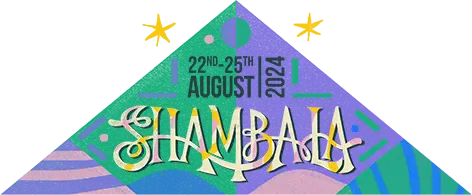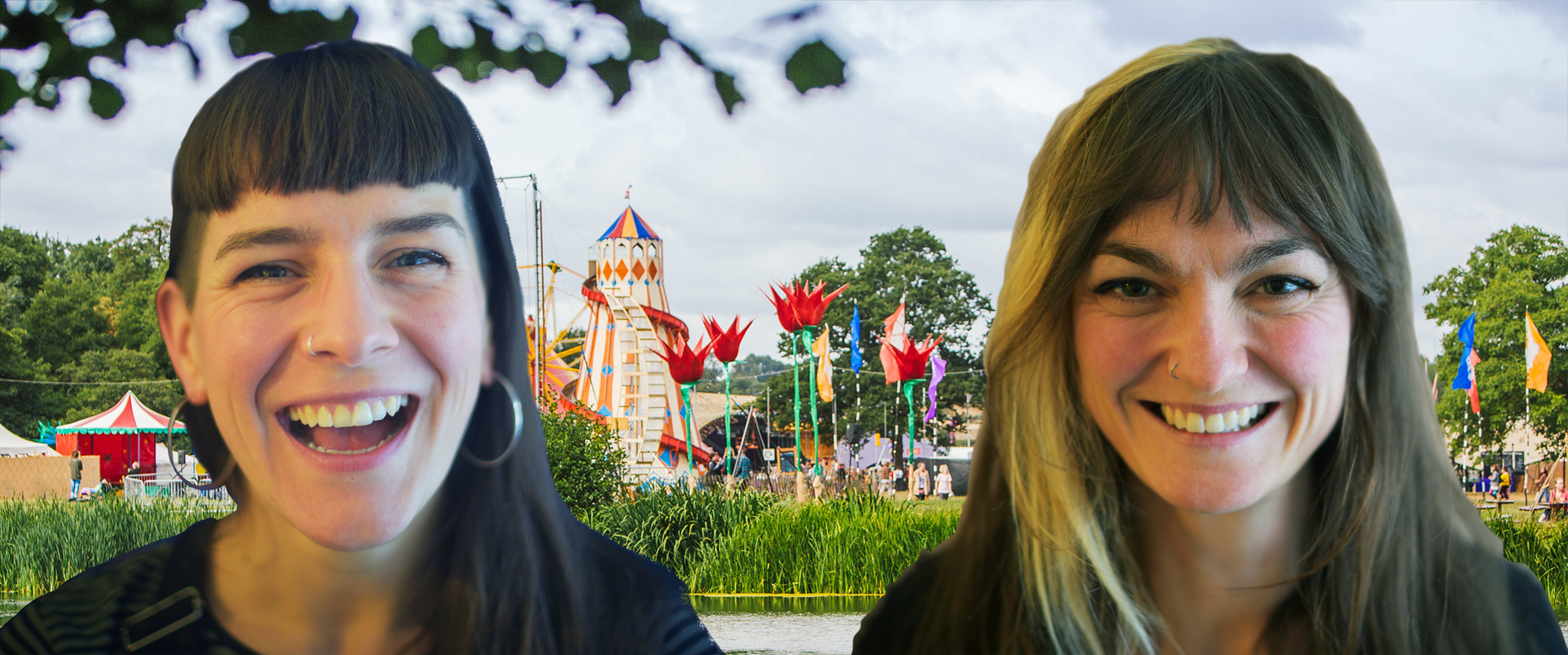As the film award season draws to a close again for a year, we touched base with Bristol-based feminist film-makers Jo Barker and Holly Black of Black Bark Films.
With movements like MeToo and Black Lives Matter having a stake in making real and positive change in the film industry, we wanted to take a look on-the-ground where independent film-makers have long been telling the stories tinsel-town has left by the way side.
Through our yearly adventures in utopia we’ve come to know that where there’s creativity, there is power to create change. Jo and Holly’s film-making speaks power to this and puts community at the forefront, using film to bring unheard voices and stories to our attention.
Having worked with Shambala and Bristol’s No More Taboo, a non-profit tackling period poverty, Jo and Holly helped create the first non-gendered menstruation station at a UK music festival; The Red Sea Travel Agency at Shambala 2018 – look out for their short documentary about this – coming soon. Last year at Shambala we also screened their incredible film on farming (In Our Hands).
We caught up with Holly and Jo, to talk story telling and using films to creative positive change – as well as picking their brains on top tips for any budding Shambalan film makers.
Is there power in a story?
HB: Storytelling is the way in which we understand the world. As Chimamanda Adichie Ngozi argues, there is a real danger in the idea of ‘a single story’ – having just one narrative of a subject. Through our work we really try to veer away from the danger of a single narrative.
JB: Stories and metaphors are an extremely powerful in enabling us to understand another person’s perspective. The way someone chooses to present something helps us to understand what goes on in their mind, what they are picking up on and how they interpret the same thing we see but through a different lense. I feel stories are tools for compassion.
Do you believe film can create positive change?
HB: Hell yes! We see before we can speak. We understand images and visual representations of the world from an incredibly young age. Film (documentary in particular) can show us the world through a different lens, one which we may not have considered before – which may or may not inspire change. We don’t make films hoping that they will change the way people live, we make films that raise questions and offer new perspectives.
JB: I totally agree with Holly. At Black Bark Films we don’t set out to change people’s opinions but to offer a platform for those voices or perspectives that are being overlooked. It’s through elevating these stories we hope our audience will consider their own opinions from a different angle, this may then result in a positive change for both storyteller and audience.
What do you think is the most important story you’ve told through your film-making?
HB: Oh my gosh. This is hard. In Our Hands was our first experience with a feature length documentary, and it allowed us to really get into some of the issues around food and farming in the UK, in the stark light of a looming Brexit. I think that the solution focused ‘we’re already doing it’ narrative is powerful in this film. The idea of coming together, of challenging the current systems and of the compelling characters involved in the food sovereignty movement is incredibly important – and we hope others feel the same!
JB: For me it was being a part of the last year of the community space Hamilton House, and documenting the eviction of Coexist who managed it. Living in Bristol and seeing the regeneration and then subsequent gentrification of the Stokes Croft area has been hard for us to watch. It’s a sad inevitability for most cities that creative, cultural community spaces go this way, but it is something that we felt strongly connected to and want to be involved in it’s documentation.
Tell us about what you’ve BEEN WORKING on recently…
HB: Recently we’ve been exploring the representation of women in film. We’ve been looking at these amazing women Jo and Shelley who are the Algobabez – live coders who are part of the Algorave scene in the UK. Within the scene they are creating safe, nonjudgmental spaces for women and people on the margins to create and perform.
We’re also working with Bristol performance artist Viki Browne to look at hyperfemininity – what it means to perform femininity in safe spaces and how this could affect a woman’s sense of empowerment. Working in theatre is a new creative venture for us, and it’s great to stretch and challenge ourselves in new areas.
What about this year in film? What films have inspired you recently?
HB: 2018 has been pretty good for female filmmakers (despite the poor show of representation at the Oscars). On Netflix we really enjoyed the 90’s nostalgia of the documentary Shirkers directed by Sandi Tan, an endearing film following the filmmakers chasing their lost film from decades ago. The Miseducation of Cameron Post by Desiree Akhavan was also a favourite of mine, looking at gender and sexuality through the eyes of a young person sent to Christian ‘pray the gay away’ camp. Also worth a mention was that Black Panther was shot by female cinematographer Rachel Morrison!
JB: I was blown away by Rafael Casal and Daveed Diggs’ Blindspotting. The way it presented hard hitting and provocative issues around race, class and gentrification through a spoken word style script was incredible. I took my parents to watch it and my dad thanked me at the end, saying he normally wouldn’t have chosen see something like that, but he was pleased as it had given him a lot to think about. Goes back to the earlier question about films making a positive change.
Any advice for Shambalans wanting to start making their own films?
HB: Just go out and make a film! Pick up a camera. Ask your pals to help out. We made our first film ‘100 Miles and 2 mouths’ accidentally, as part of a research project. It was brilliant fun and we learnt a lot by just doing it. We also learnt a lot about making documentary by putting ourselves in front of the camera and what it feels like to be on that side of things which has helped hugely in our practice!
JB: Try not to look around at what everyone else is doing, just be sure of what you are and your intentions. Your films are an extension of your voice and how you interact with the world, don’t be afraid to do it your way and offer up another way of seeing things.
. . . . .
Thanks both, we’ll see you back on the field for Shambala 2019. To all menstruating and non-menstruating Shambalan’s alike, be sure to check out the Red Sea tent in August, and Black Bark’s inspiring work in the mean time – it’s bloody great!


